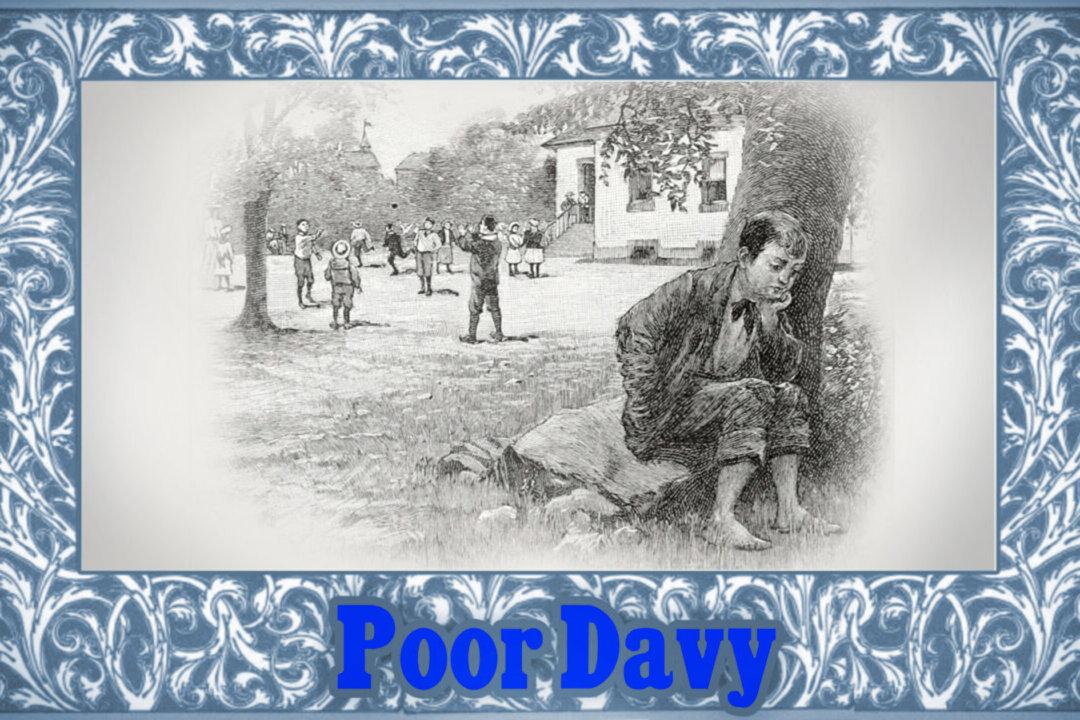This is the fourth instalment in our McGuffey Readers series, in which we reproduce some of the best moral tales from these classic 1800s schoolbooks, which sold an estimated 122 million copies by 1960, the largest circulation of any book in the world next to the Bible and Webster’s Dictionary. McGuffey’s Readers played an important role in American history, offering children not only lessons in reading, grammar, and spelling, but also in moral conduct and character. Enjoy, and share with your children!
Poor Davy
It was recess time at the village school. The bell had rung, and the children had run out into the bright sunshine, wild with laughter and fun.All but poor Davy. He came out last and very slowly, but he did not laugh. He was in trouble, and the bright, golden sunlight did not make him glad.






